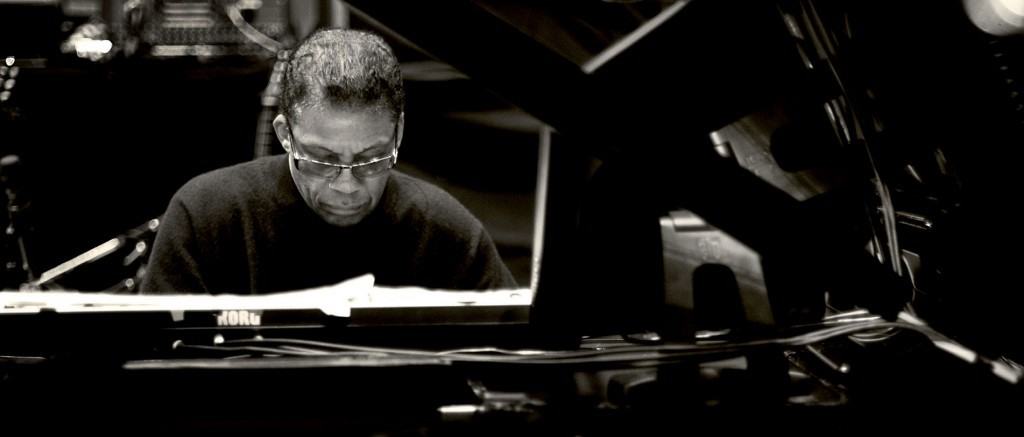Jazz legend Herbie Hancock is delivering this year’s Norton lectures at Harvard. He follows in the footsteps of luminaries like T.S. Eliot, Robert Frost, and Igor Stravinsky, and over the course of six lectures he plans to explore the “ethics of jazz.”
In an interview with the Boston’s Globe’s Arts section, Hancock explained, “it’s ethics in a broad sense. When you’re playing with other musicians, your task is to make whatever happens work.”
Hancock’s first lecture was Monday in Sanders Theater, and it included an interesting anecdote. He began by explaining that some years ago he found himself in a musical rut, “playing the same stuff over and over again.”
One night during that time he was onstage with the Miles Davis Quintet, at Lennie’s on the Turnpike in Peabody. Davis, sensing Hancock’s frustration, leaned over to him and said, “Don’t play the butter notes.”
After some thinking, Hancock realized that Davis meant, “don’t play the obvious notes because I figured butter might mean fat, and fat might mean obvious.”
He goes on to explain that the most obvious notes in a chord are the third and seventh notes, and that after Davis’s comment, he omitted them, and the audience loved the result.
Implicit in Davis’s advice is the counterintuitive idea that having fewer options actually expands the creative possibilities available to a musician, because you have to work extra hard to make up for the absent notes. Via http://www.boston.com
The Miles Davis Quintet was in Stockholm performing in a huge arena. As Herbie Hancock tells it, “The night was magical, the audience was rapt, the band was hot, communicating telepathically, like a dream. The kind of night every jazz musician dreams of.”What a lesson for all of us. But especially those of us who strive to make something new and creative and so often have it potentially derailed by changes in strategy, crazy creative directors, clients who throw a wrench in the works.
Learn to take something potentially disruptive and turn it into something positive. With talent, with attitude, with a willingness to change perspective.
The lesson? Don’t fall into the familiar. Don’t repeat the same concept, approach, technique over and over. Take something away. Eliminate anything from the process to the brief, the regular team, even the place you go to have ideas. Eschew the tried and true. What’s left might let you find something fresh, original, and better.
As Hancock says, it was that experience that taught him courage, creativity and the confidence to experiment. Major lessons for us all. Whether we know our chords or not.
Via Lessons in creativity, collaboration from Herbie Hancock. | Creativity Unbound


